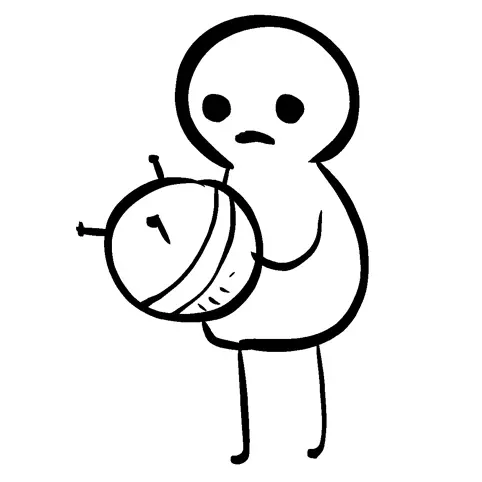Hand-wired, 3D printed case, laser cut switch plate, “laser dye sub” keycaps, custom layout.
Posted this on a couple of communities a while back, but I just subbed here and this board has actually worked really well.
when you need four times the space 🤣
I see what you did there.
No rattling stabilizer wires in this build though. NONE. Cuz they can’t rattle if they ain’t there.
ooh this is rlly cool!! I think the layout would drive me insane tho xp
It’s not a world apart from what the keyboard world calls a “96%”. I made sure no key was wide enough to need additional stabilizing clips, which led to the split space among other changes, but layout-wise it’s not too far off from several numpad laptop keyboards I’ve used over the years. It has been very liveable, and it’s on my work computer now.
Right up my alley. Nice job!
Great work! I like Backspace and Delete being next to each other, makes total sense.
Do the 4 different space keys have a function?
Do the 4 different space keys have a function?
They COULD, as the keyboard is completely programmable, but for now mine don’t. I wanted to avoid stabilizers for this build, the little clips with wires that make wide keys work properly. They’re fiddly and can be rattly if you you don’t set them up just so and even add a bit of non-conductive grease of some sort.
I like the placement of Delete (numlock is hiding as “Fn+CapsLock”), but if I were doing it over I’d switch things around just a touch and have Backspace just a touch wider and delete as a normal-sized key. My finger seems drawn to delete. The layout has been really liveable though; no major complaints.
How did you make the internal circuitry?
I have not yet dived into PCB design, so this is a hand-wire. The brains are a Raspberry Pi Pico microcontroller unit running a keyboard Python package called KMK. The switches under the keycaps are manually soldered in a matrix, with diodes to allow a human number of i/o signals (rather than a dedicated one for every single key) but still prevent the RPi from accidentally detecting ghost keys.
Nothing new under the sun here, and I have learned a lot from the various resources out there, but there are not a ton of people doing their own keycap legends (this batch is underwhelming in color, but very serviceable), and most handwires tend to be ergonomic models that are more off the beaten path than this layout, which, TBH, is quirky but has a ton of keys and is pretty similar to several off the shelf models.
I do think it’s a really cool project, I am more of a completely custom keycap kind of guy but thanks nonetheless
Understandable. I stay cheap on my keycaps, but I do have some Akko SA-L on a (slightly) more traditional TKL-like I did before this one, and I do like my bright little plastic nuggets, though I fell down a different rabbit hole within the hobby.
These started as blank PBT in XDA. I needed non-sculpted and blank modifiers to accommodate all my no-stabilizers shenanigans, so I used “infusible ink” markers to color in the tops and then precisely heated them with my laser engraver and cleaned with acetone. Lasers and acetone would be very bad for ABS.
Wow hand wiring this must have been tedious, impressive! I got a custom board for just a 40% to avoid the hassle
I find it kind of relaxing, really. Like tying fishing flies, but mildly carcinogenic!
This is 🔥
This looks so good, would definitely buy it for an inappropriate amount of money
Not once you see the 3D printer seam running down the middle or the rats nets of wires connecting the (rather tidy) matrix to the RPi. 🤣
It does work nicely though. Sometimes has a spasm of gibberish when I plug it in, but very well behaved afterwards, and a pleasant clicky typing experience.
Beautiful! I wish I could hear what it sounds like. Is it clicky?
I used Kailh Box Jade switches. It is VERY clicky. The Masonite plates and plastic side case don’t echo much though, so it’s not resonant or hollow; it mostly sounds like you’re holding the switches themselves in your hand, with a fairly muted bottom out from these cheap-n-chunky XDA keycaps.
My favorite board to type on uses the equally loud Box Navies on an aluminum plate that serves as the entire top of a short “sandwich” case. I think it’s fair to say I am not quite in line with the majority of mechanical keyboard enthusiasts.





